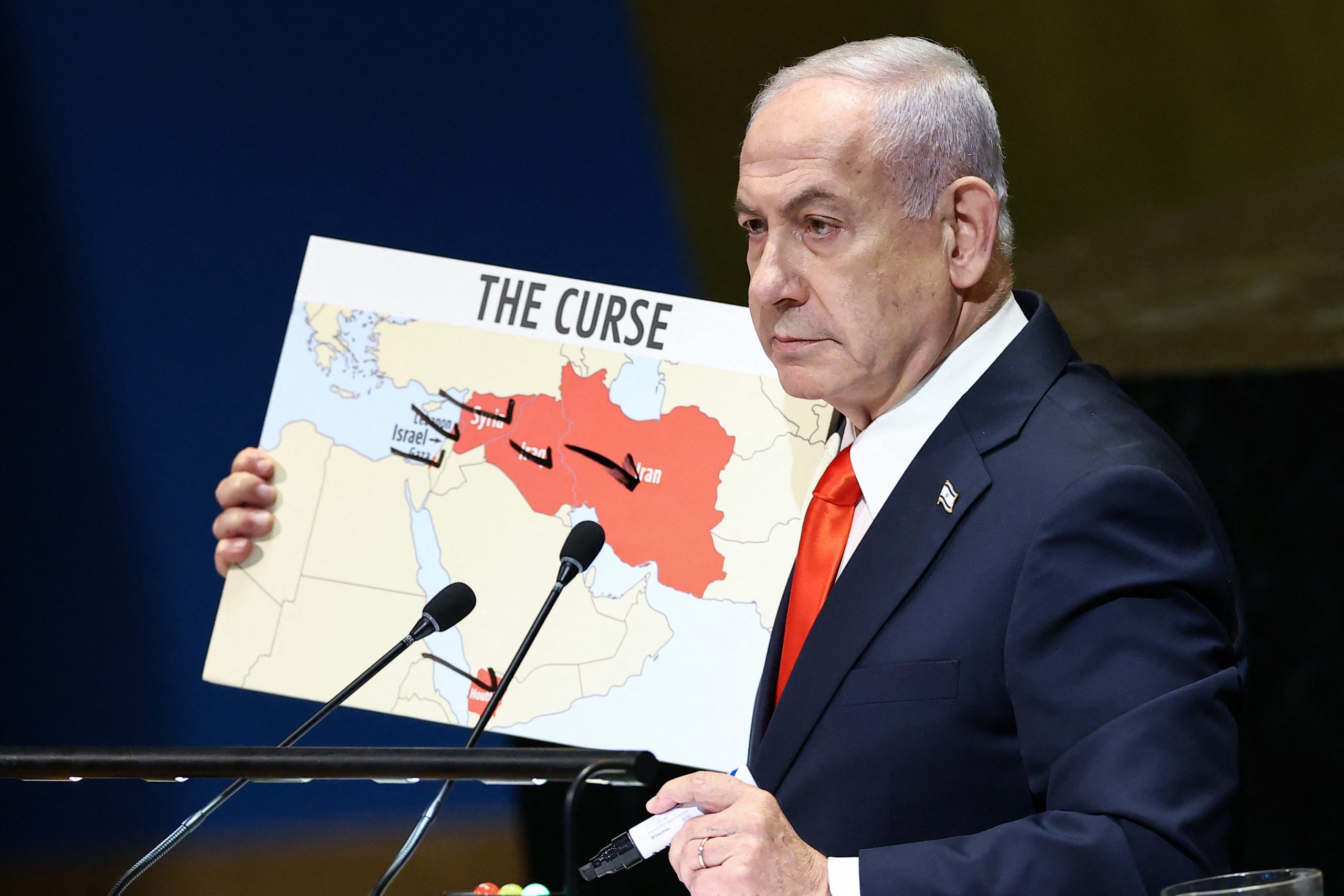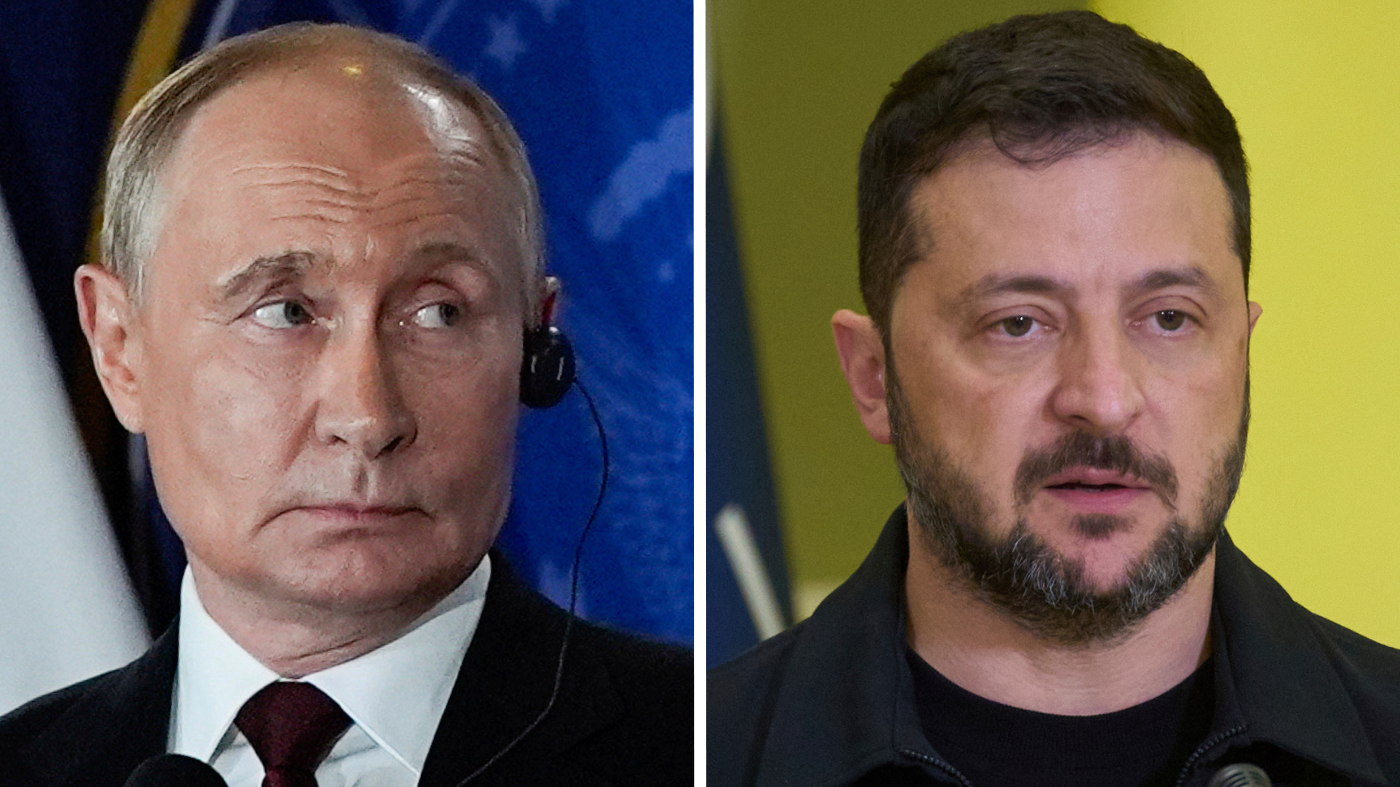
Macron is the first sitting president in 20 years to be re-elected. He won by 58.55 per cent to 41.45 per cent, a greater margin than expected.
More than one in three voters did not vote for either candidate. Turnout was just under 72 per cent, the lowest in a presidential run-off since 1969, and more than three million people cast spoiled or blank votes.
Despite her loss, Ms Le Pen, 53, said her significant vote share still marked a victory.
Le Pen took over the party founded by her father Jean-Marie Le Pen in 2011 in a bid to make it electable. She won more than 13 million votes in the election, on a platform of tax cuts to tackle the high cost of living, a ban on wearing the Muslim headscarf in public and a referendum on immigration controls.
In his victory speech, Macron said: “An answer must be found to the anger and disagreements that led many of our compatriots to vote for the extreme right. It will be my responsibility and that of those around me.”
Usually, 21 cannon shots are fired to mark the inauguration, but Presidents François Mitterrand and Jacques Chirac both skipped that tradition after they were re-elected in 1988 and 2002 respectively. Macron is the only other leader of modern France to win a second presidential term, so time will tell whether he will walk in the footsteps of his predecessors.
On May 9, Macron is expected to make a speech on Europe in Strasbourg, northeastern France, the seat of the EU parliament.
The president, who intends to focus on domestic and foreign policy, would soon face crucial parliamentary elections, where he may be faced with some challenges in keeping his majority.
On domestic policy, Macron stated that one of his priorities would be to pass a special law to support purchasing power amid the surge in food and energy prices fed by the war in Ukraine by summer.
The nationwide parliamentary elections, scheduled in two rounds on June 12 and 19, will decide who controls a majority of the 577 seats in the National Assembly. If Macron’s party, La République En Marche! (LREM) gets a majority, he will name a new government accordingly and will be able to pass laws smoothly.
If another party gets a majority of seats, he will have to appoint a Prime Minister belonging to that new majority. In such a situation, usually called “cohabitation” in France, the government most times would implement policies that diverge from Macron’s project. Macron will, however, hold sway over France’s foreign policy.
Lawyer and foreign affairs commentator, Henry Ugwu noted that the close nature of the race between Le Pen and President Macron speaks significantly to the mood of France and the dynamics of the political tendencies in France.
He explained that Le Pen, leader of the National Rally Party, has been described as a politician on the far right of the political spectrum.
“The politics of the far-right has been associated with ultra-nationalist and nativist philosophies, and in certain instances, extreme tendencies like racial supremacy,” he said.
Ugwu, however, stated that despite Le Pen’s leadership at the National Rally (her political party) deviating from some of its core inclinations, for instance, by revoking its opposition to same-sex partnerships and its support for the death penalty, Le Pen remained a strong voice for some political underpinnings of the party. These underpinnings, Ugwu said, support strong anti-immigration and nationalist policies, which they believe would prioritise and protect the French identity.
“It had also been widely reported that Le Pen is firmly opposed to American and NATO policies that do not designate the interests of France on the highest level. She had pledged to remove France from the sphere of influence by America and NATO,” he explained.
According to him, on the other hand, President Macron had been an externalisation of a European-centric politician, who was opposed to all the extreme tendencies of Le Pen and her far-right movement.
He, however, stated that it is anticipated that Macron’s liberal stance would be greatly influenced by the outcome of the recent elections because he now sees that France is more divided than it had been in a very long time with ultranationalists appearing more popular, assertive and influential in the French political space.
“Finding a compromise in leading an inclusive government may see the French President take more stringent positions on sensitive items like immigration,” he said.
Ugwu stressed the need for Nigeria to realise that citizens of many developed nations of the world are beginning to rally around political policies that emphasise their identities and welfare above other considerations.
He urged Nigeria to make efforts towards self-development, as, in no distant time, there would be no nation to run to for help.
“Therefore, we must take a cue and take deliberate and meticulous steps to prioritise the welfare of Nigeria and Nigerians in all facets of our political and government process. Very soon, we will have nobody to borrow money from, and no foreign superpowers to timely intervene when we find ourselves in difficult situations because everyone is thinking of themselves and their countries first.
“The growing support base of Le Pen and her party gives life to this point and the dynamics will surely affect France’s interaction and intervention in Nigeria and Africa,” he declared.
Former Director-General, Nigeria Institute of International Affairs (NIIA), Prof. Bola Akinterinwa, said the re-election of Macron was expected, as it is not known in history where France would go to the extreme right.
He noted, however, that people voted in anger. They said they voted with their hearts in the first round and with their hands in the second round of the elections.
Explaining the previous statement, he said, “It means when you are faced with two devils you have to take the better one.”
“In this case, it’s not because one likes anybody, it’s just that Le Pen is very anti foreigners and anti-immigrants. She thinks that migrant foreigners are responsible for the problems of French people.”
According to him, in France, everybody agrees that the cost of living is very expensive, which should compel the people to vote against Marcon, but they had to make a choice between the high cost of living and what Le Pen stands for.
Akinterinwa added that Le Pen is already hobnobbing with Vladimir Putin of Russia and now the whole of Europe is fighting with Russia.
He stated that Europe doesn’t want to start a war with Russia, so in spite of what is happening between Russia and Ukraine, they could only meet out economic sanctions. America on the other hand is pushing them to go beyond that by engaging in the bombing, but they know that when that begins, it would give room for war.
“France weighed all these and decided that Macron was a better option to be voted in and you can see the percentage difference? Le Pen still made a lot of progress though,” he said.
On the implication of a second term for Africa, Akinterinwa explained that before the election, France had not been doing very well in Africa.
In Mali, for instance, the Malian government has asked the French soldiers to leave. The unrests in Burkina Faso and Guinea have also shown France’s fading efforts to stabilise the region.
“People are saying enough of Macron, they are asking what purpose the development aid given to francophone Africa by France served.
“The implication is that Macron would be challenged about the new vicissitudes of the African people, which is saying enough of colonisation in different forms,” he explained.
Member, National Institute of Policy and Strategic Studies, Omoba Tunde Ajibulu, said Macron’s re-election is a positive development for Nigeria, as he has not hidden his love and his government’s disposition towards Nigeria.
He explained that France needs stronger ties with Nigeria, the most populous black nation because her hold on francophone Africa has gradually started to fidget with Mali as a key example.
“We have seen him visit Nigeria and mingle without inhibition. We have seen him inaugurate the French/Nigeria Business Council, which is meant to copiously increase commerce between the two countries. Macron has also vowed to help Nigeria tackle regional insecurity in a message during Nigeria’s 61st anniversary,” he said.
According to Ajibulu, from all indications, Macron fell in love with Nigeria in 2002 when he was an intern at the French Embassy in Lagos and he seems poised and determined to resurrect the extremely robust diplomatic and commercial relationship that existed between France and Nigeria in the 70s and 80s.
He added, however, that Le pen’s victory would have set the relationship between the two countries back.






